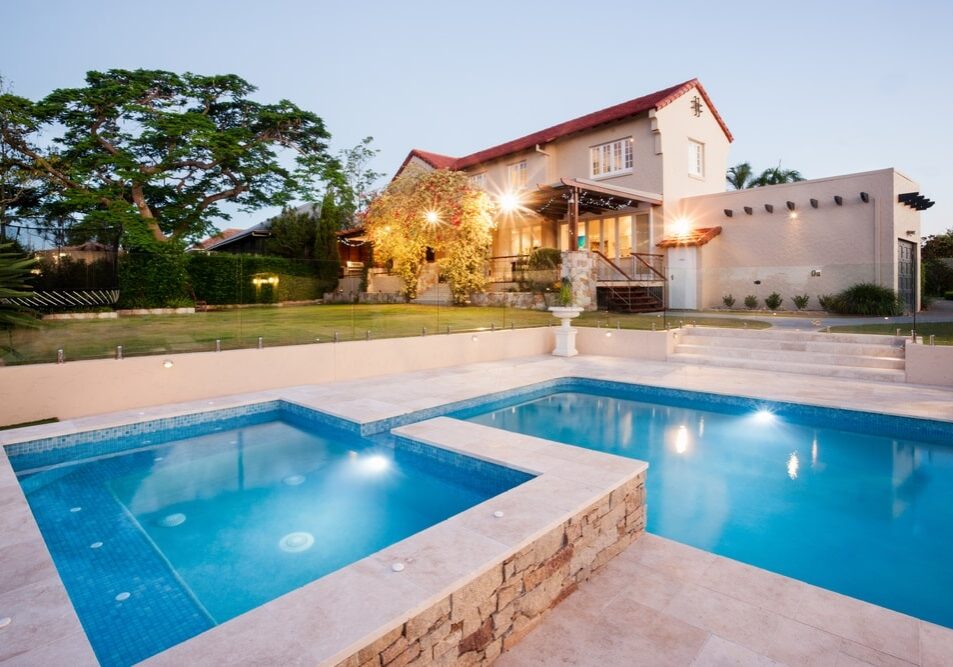It is common for homeowners to have some sort out outdoor lighting around their homes that they can control. Most have porch lights or security lights that are manually controlled or automatically turn after the sun goes down. However, there are countless options for outdoor lighting to not only improve the security of your home or property but also enhance it aesthetically. No matter what type of lighting you are investing in, it is important to ensure it is safe and up to code to avoid devastating problems that may occur with improper installation.
Even simple temporary installations like holiday lighting for Christmas or Halloween can go awry if installed improperly. With this in mind, take the time to ensure that your existing fixtures are safe with the following outdoor lighting tips and then determine how you want them to function or look around the property. Ready to get started? Keep reading to learn our top recommended outdoor lighting tips to ensure you are keeping your lights on with minimal risk year-round.

Ensure Fixtures are Outdoor Rated
Because they are installed outdoors, lighting fixtures must be outdoor-rated to protect them from wet conditions. This is also true even if the lights are protected by an eave or other covering because the humidity in the air can quickly attribute to water accumulation, especially in Oklahoma. Look for a tag that says “suitable for wet locations” before investing or installing a new light fixture to ensure it can stand up to the elements.
Verify Your Maximum Wattage
Overloading fixtures with the wrong bulb is a common problem because homeowners aren’t sure what the maximum wattage rating for their fixtures may be. Most fixtures have a maximum wattage rating sticker or label attached that range from 60W to 100W. This indicates the maximum wattage level recommended in that specific fixture. Overloading the fixture with higher wattage can cause the wiring to heat up and damage the insulation. Further use could ultimately lead to a fire.
Install Outdoor Rated Bulbs
If your existing light bulb goes out, you may consider just popping in one of the spare indoor bulbs that you have around the house. While this may seem like a good idea, it is important to ensure that the bulb you are using is rated for outdoor use or it could die quickly. Some bulbs are labeled to survive in the freezer or oven. If it meets these specifications, it can probably withstand the outside climate of your home and provide continued support with little to no problems.
